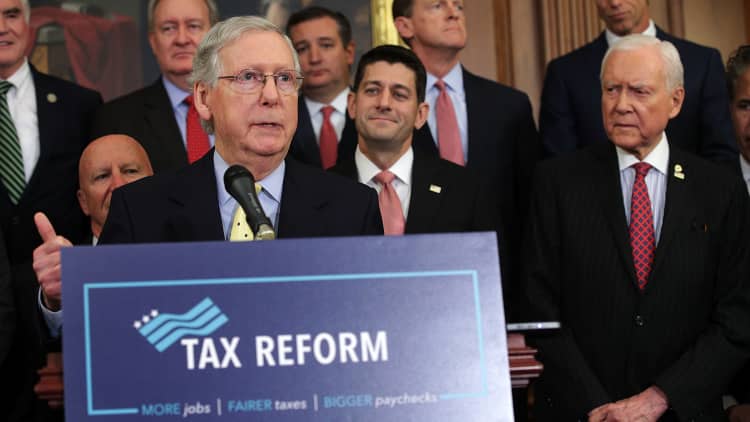
Depending on how tax-reform efforts shake out in Congress, vacation homes could become a less-appealing purchase — unless you want to become a landlord.
The House version of the Tax Cuts and Jobs Act would eliminate the deductibility of mortgage interest on second homes. If the provision is included in the final bill that comes out of the legislative process, the only way to benefit tax-wise from a vacation home would be to rent it out.
"If someone uses the second home purely for vacation, they would get no tax benefits. They'd have to rent it out to get a tax break," said Lawrence Yun, chief economist for the National Association of Realtors. "This would unintentionally make property ownership turn into rental ownership."
It's unclear whether the change would apply only to new second-home purchases, or even whether it will make it into the final version of the tax bill.
Under current law, you can take a deduction for the interest you pay on up to $1 million of mortgage debt (plus $100,000 of home equity), which applies to your first and second homes. The House bill proposes reducing that ceiling of qualifying debt to $500,000.
Additionally, you currently can deduct property taxes on a vacation home (along with other properties), although the House tax bill caps the deduction at $10,000 and the Senate bill eliminates it altogether.
For consumers considering a second-home purchase, those tax breaks can help make a family vacation spot more affordable. Eliminating them would mean the only way to get a tax benefit would be to write off the costs associated with renting your vacation home: including maintenance, upkeep, insurance premiums — and yes, property taxes and mortgage interest.
Basically, different tax rules apply depending on how the property is used.
"It's the same loan, the same payments, the same interest, but you have outsiders using the home," Yun said. "That would make the same mortgage costs deductible."
While it's not necessary to form a legal business entity to rent out your vacation home, there are tax rules that apply to exactly when and how much you can deduct.
Source: National Association of Realtors
If you rent the place for 14 or fewer days a year, the associated income is tax-free. If you rent for longer, you must report the income on your tax return.
You also have to allocate the costs between personal use and rental use to determine how much can be deducted, which can be a bit complicated. And if you end up using the home for more than 14 days or more than 10 percent of the days it's rented (whichever is greater), it is considered a personal residence.
Economists also say eliminating the tax break for vacation homes could hurt some local economies dependent on the economic activity generated by vacationers.
"If there's a corresponding demand for rentals — say, people have more to spend after tax reform — that could keep prices stable," said Danielle Hale, chief economist at Realtor.com. "But if there are more rental properties on the market than demand, rents will fall … and generally the price of those [homes] will fall also."
More from Your Money, Your Future:
Tricks to save big on Black Friday and Cyber Monday
How to avoid getting defrauded on your investments
Same-sex divorce poses complications for some splitting couples






